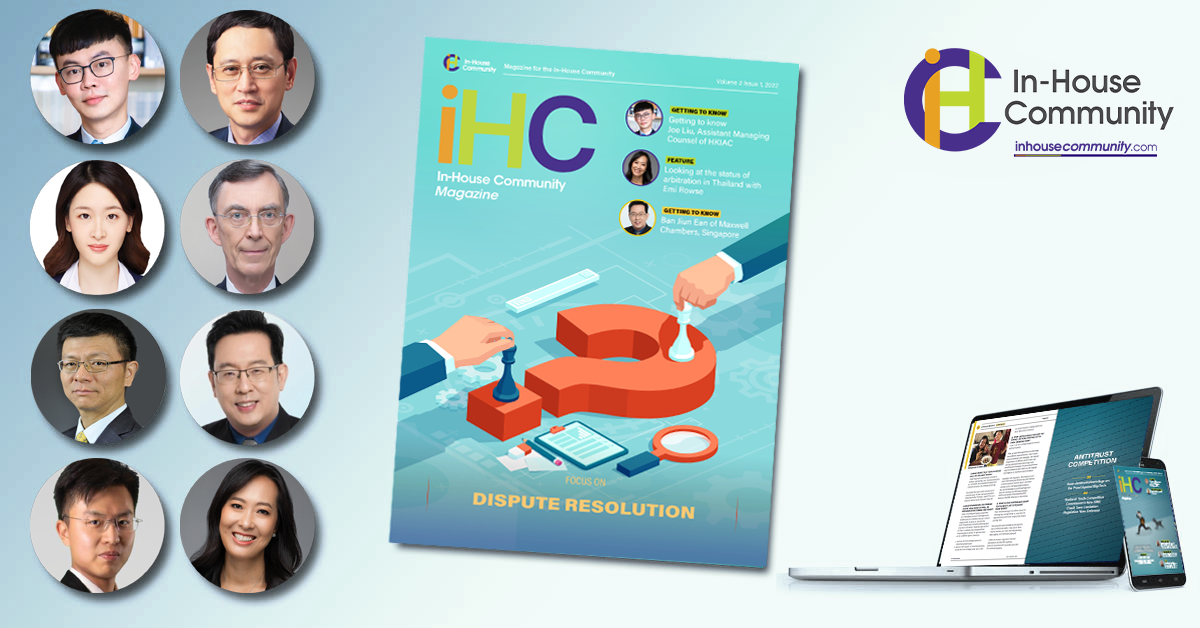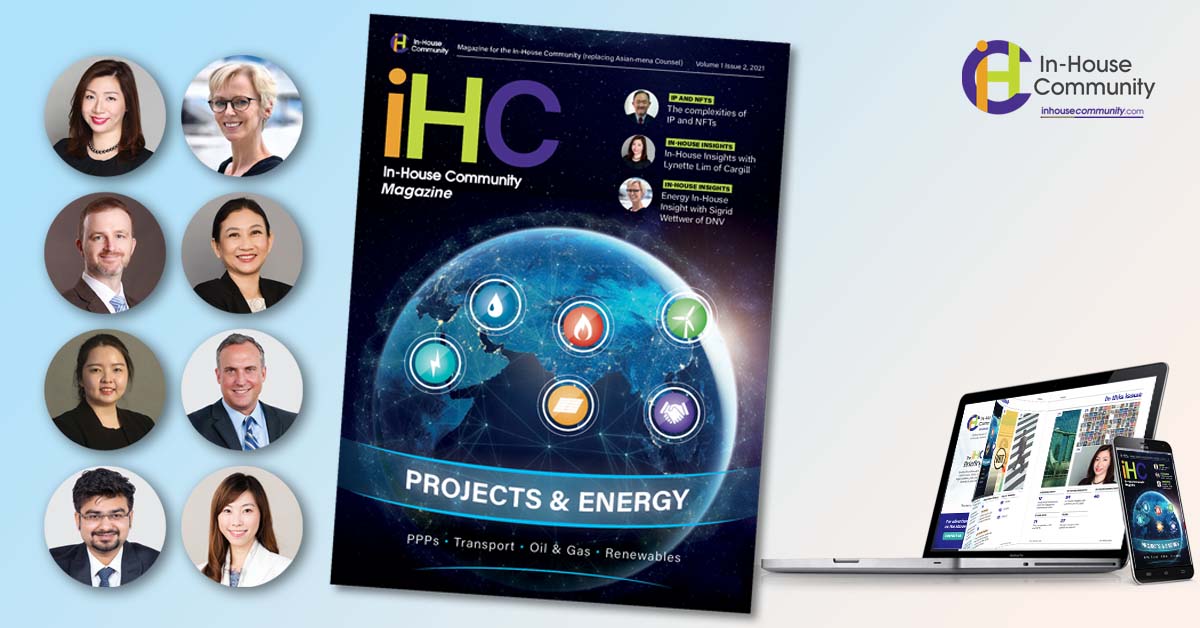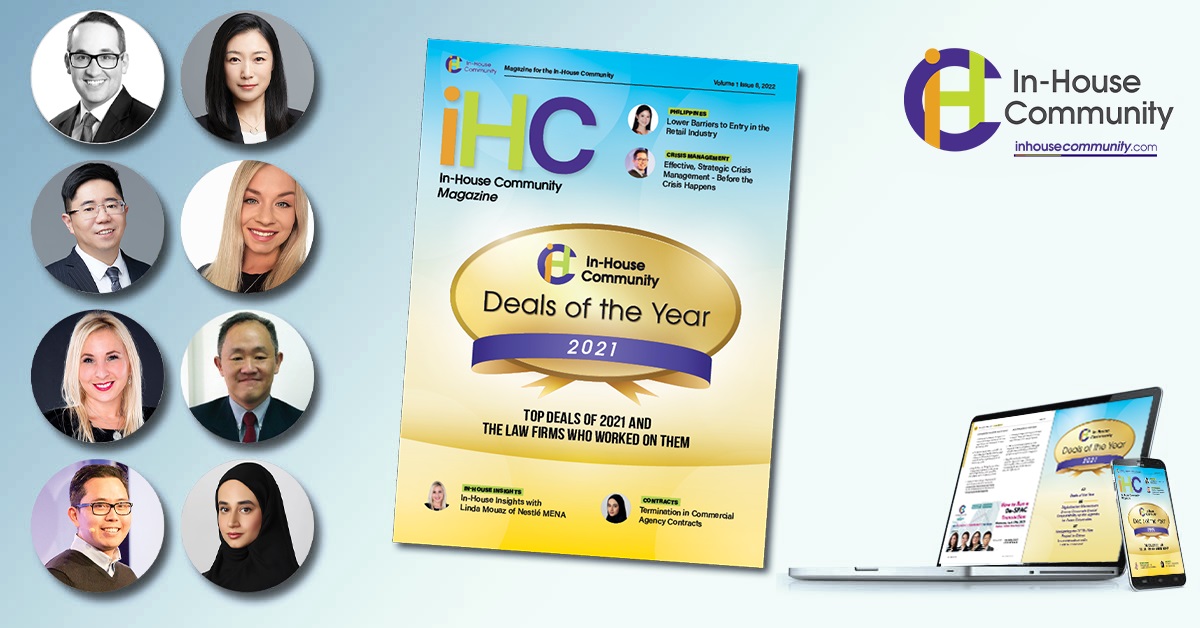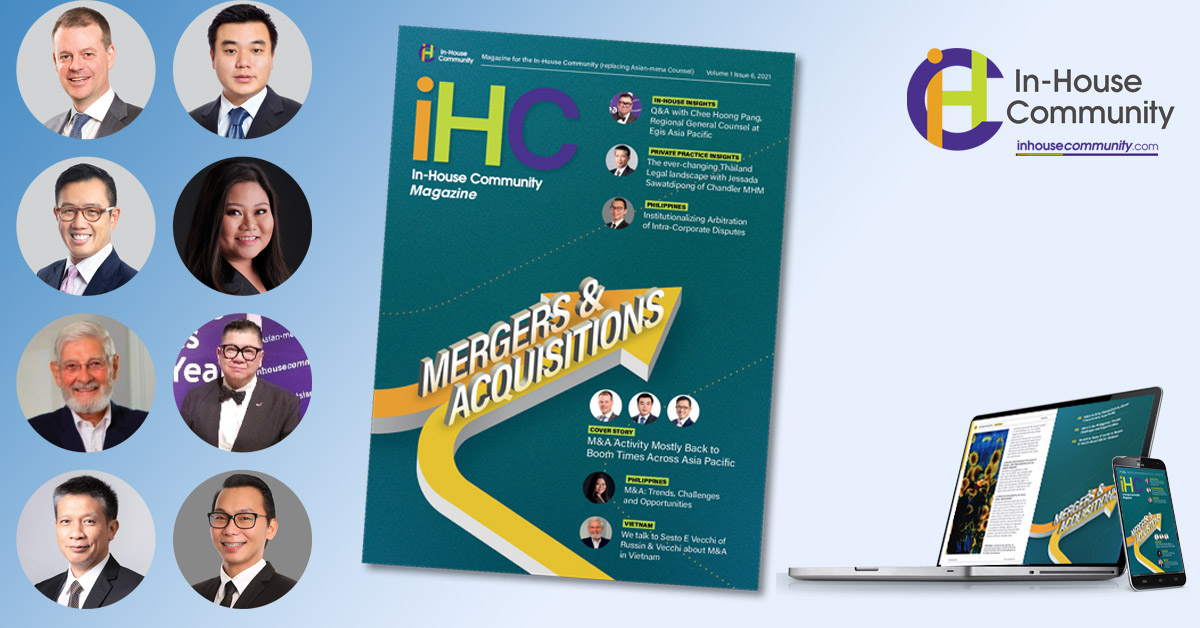December 12, 2022
The interactive edition of the Dec 2022 issue of In-House Community (IHC) Magazine is now live (below). In this issue, we dive into legal tech and innovation. We take a look at developments in the region as law firms and in-house teams alike have adopted innovative solutions to challenges both new (pandemic-induced) and old. Travel restrictions may have killed business travel in the preceding years but we here hear about whether it may yet be brought back to life (Maxwell Chambers). Changes such as these are never easy. This month we also learn a thing or two about harnessing an agile and innovative mindset during periods of uncertainty (Peerpoint). We further hear from the Simmons & Simmons Adaptive team on their new alternative legal service offering in HK in a bid to solve their clients’ resourcing challenges. Lastly, we take a moment to reflect on the Hong Kong In-House Community Congress held on 15 November 2022 where we were once again able to meet in person for a fruitful day of discussion and learning. Our regular column updates for the issue include: SPECIAL FEATURES We speak to Francesca Gori of Accenture Legal on cultivating purpose-driven values in-house that transcend the old fashioned 9-5 mindset to create meaningful change for clients and communities. We also cover last month’s top deals, partner level moves, and latest legal industry... November 3, 2022
The interactive edition of the Sep 2022 issue of In-House Community (IHC) Magazine is now live (below). This issue of In-House Community Magazine, we consider dispute resolution – specifically arbitration. We hear about the new “Shenzhen & Hong Kong” Arbitration Model, established with the mission of building an international arbitration hub in the Guangdong-Hong Kong-Macao Greater Bay Area in mind (SCIA). We also hear about Hong Kong’s new Outcome Related Fee Structure Arrangement for Arbitration, predicted to be a win for both legal practitioners and clients alike (Hill Dickinson). There are many touted benefits of arbitration, not least of which is party autonomy, including a look at the psychological benefits of arbitration and the status of arbitration in Thailand (Kudun & Partners). And we also look deeper into the new ‘Competence-Competence’ doctrine in arbitration law in China (Llinks Law Office). INCLUDING SPECIAL FEATURES We are further taught a lesson on the benefits of board portal communication over traditional email and PDFs (Praxonomy). Ban Jiun Ean talks to us about rejoining Maxwell Chambers, Singapore, after leaving in 2015. Far from spending his days away steeped only in legal work, he ran a theatre and arts centre and wrote a children’s book! This creative mindset illuminates his ideas on ADR. We further get to know Joe Liu formerly of the Hong Kong International Arbitration Centre, now forging a new path as an independent arbitrator. His global career journey gives him much-needed worldly insight into the field of arbitration. As usual, we also cover last month’s top deals, partner level moves, and latest legal industry news. We hope you enjoy the issue.... July 19, 2022
The interactive edition of the June 2021 issue of In-House Community eMagazine is now live. Including Energy & Projects Report 2021, Philippine and off-shore jurisdiction updates, and articles exploring IP in NFT's, Singapore's cybersecurity laws, global tax reform and more. June 20, 2022
Social media platforms, such as Facebook, Twitter, YouTube, and TikTok, play a vital role in the dissemination of information, as well as in the discourse of opinions among Filipinos. According to We are Social’s 2021 Digital Report, the Philippines, known as the “social media capital of the world”, ranked as the country with the highest social media daily usage, with an average of 4 hours and 15 minutes a day. In the same report, data revealed that about 80.7% of the Philippine population, or around 89 million out of 110.3 million Filipinos, are active social media users. The prevalence of social media as a means of communication and channel of information brought with it the Filipinos’ reliance on these platforms for sources of daily news. Around 72% of Filipinos get news from social media sites, with Facebook as the number one news source (see We are Social’s Digital Report 2021). A problem, however, arises when news pieces obtained from these platforms are unverified, false, or misleading. Over the years, social media developers have received multiple criticisms on the circulation of fake news on their platforms. Based on the Community Standards or Guidelines of social media developers, the most that these platforms can do to combat fake news is to substantially limit the reach of the post, temporarily or permanently suspend the account, or take down the post, if necessary. Beyond these platforms, however, there is a lack of accountability on the part of the user who posted the false information online. Consequently, peddlers of fake news are not afraid to create fake accounts and post false or misleading information... April 12, 2022
In this edition, along side Q&A's with lawyers and other important legal updates, we feature our Deals of the Year report, showcasing our winning deals of 2021. These suggest a post-pandemic market comeback, with notable trends in green bond issuance and renewable energy projects. Digitalisation is another trend in global business, which has seen a COVID-related acceleration to perhaps “breakneck speed” (Eversheds Sutherland). In China, the Securities Regulatory Commission launched its pilot REITs project in 2020 to revitalise infrastructure assets and capital market ability to serve the real economy. We hear about the challenges and successes of this project (East & Concord). December 13, 2021
The interactive edition of the December 2021 issue of IHC (In-House Community) Magazine is now live (below): Or Download... Recent Past Events













